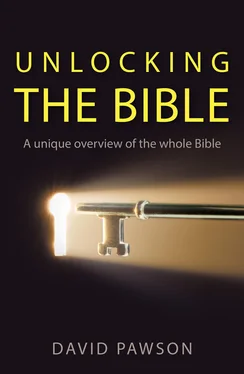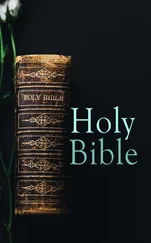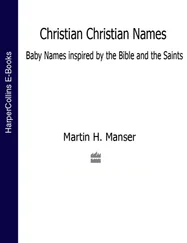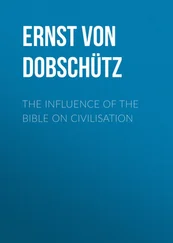It has long been the tradition among Jews, Christians and even pagan historians that Moses wrote these five books and there seems to be no good reason to doubt it. By the time of Moses the alphabet had replaced the picture language which prevailed in Egypt and is still used in China and Japan today. Moses was university educated and so had the learning and the knowledge to compile these five books.
There are, however, two problems to consider if Moses wrote these five books.
PROBLEMS OVER MOSES’ AUTHORSHIP
The first problem is quite minor. At the end of Deuteronomy Moses’ death is recorded. It is a little unlikely that he wrote that part! Joshua probably added a note about it at the end of the five books to round off the story.
The second, and major, problem is that the book of Genesis ends about 300 years before Moses was born. He would have no problem writing the books of Exodus, Leviticus, Numbers and Deuteronomy, since he lived through the events they record. But how could he have obtained his material for the book of Genesis?
The problem is easily overcome, however. Studies made of people in non-book cultures have revealed that those who cannot write have phenomenal memories. Tribes which have no writing learn their history through the stories passed on around the camp fire. This oral tradition is very strong in primitive communities and would have been so among the Hebrews, especially when they became slaves in Egypt and wanted their children to know who they were and where they had come from.
There are two kinds of history normally passed down in this memory form. One is the genealogy, since their family tree gives people an identity. There are many genealogies in Genesis, with the phrase ‘these are the generations of’ (or ‘these are the sons of’ in some translations) coming 10 times. The other is the saga or hero story – telling of the great deeds which ancestors accomplished. Genesis is composed almost entirely of these two aspects of history: stories about great heroes interspersed with family trees. With this in mind, it is easy to see how the book was composed from memories which Moses gleaned from the slaves in Egypt.
Nonetheless, this does not answer all the questions about Moses’ authorship. There is one part of Genesis which he could not possibly have picked up that way, and that is the first chapter (or rather 1:1 through to 2:3, since the chapter division is in the wrong place). How did Moses compose the chapter detailing the creation of the world?
It is at this point that we must exercise faith. Psalm 103 refers to God making his ways known through Moses, including the creation narrative. It is one of the few parts of the Bible that must have been dictated directly by God and taken down by man, just as God clearly tells John what to write in Revelation when describing the end of the world. Usually God inspired the writers to use their own temperament, memory, insight and outlook to shape his Word (as with Moses in the rest of Genesis), and he so overruled by the inspiration of his Spirit that what resulted was what he wanted written. But he gave the story of creation in direct revelation.
A confirming detail is provided when we consider that there was no record of the Sabbath being observed before the time of Moses. We do not read that taking a day for Sabbath rest was part of the lifestyle of any of the patriarchs. Indeed, there is no trace at all of the concept of a seven-day week. Any time references are to months and years. Since we have Genesis 1 at the beginning of our Bible, we assume quite wrongly that Adam knew about it and observed a Sabbath as a model to everyone after him. But it seems instead that Adam looked after the Garden of Eden every day and had time with the Lord in the evenings. Likewise there is no suggestion that Abraham, Isaac or Jacob took a Sabbath, and their work as herdsmen probably offered little time for rest.
All this need not surprise us if, as suggested above, Moses received the first chapter – including the concept of Sabbath rest – from God himself. With this knowledge, he was then able to introduce the Sabbath concept into the life of Israel through the Ten Commandments.
To summarize, then, Genesis is clearly a book from God and should be read with this assumption. It is also a book written by Moses, using his education and gift for writing from his time in Egypt to record the extraordinary works of God as he reverses the effects of the Fall in the call of Abraham.
The shape of Genesis
It is instructive to note the overall shape of the book. The first quarter (Chapters 1–11) forms a distinct unit, covering many centuries and the growth and spread of nations throughout the ‘Fertile Crescent’ (the land stretching from Egypt to the Persian Gulf in the Middle East). The watershed comes with God’s call of Abraham in Chapter 12. The next three-quarters of the book has a narrower focus, chronicling God’s dealings with Abraham and his descendants, Isaac, Jacob and Joseph.
There are other divisions within this overall shape. In Chapters 1–2 everything is described as good, including human beings. In Chapters 3–11 we see the origin and results of sin as man drifts spiritually and physically away from Eden. We see God’s character, his justice in punishing man, and his merciful provision even within this punishment.
In Chapters 12–36 six men are contrasted: Abraham with Lot, Isaac (child of promise) with Ishmael (child of flesh), and Jacob with Esau. We are faced with two kinds of people and asked which we identify with. God is tying his own reputation to three men, Abraham, Isaac and Jacob, flawed as they are. Finally the text focuses on Joseph, an altogether different character. We will see later how and why he is so distinct from his forefathers.
In the beginning God
Let us turn now to the book itself and to the amazing chapter with which it opens. It begins with the words, ‘In the beginning God’.
Genesis is full of beginnings, but it is clear that God himself does not begin here. God is already there when the Bible opens, for he was already there when the universe came to be. Philosophical questions concerning where God came from are really non-questions. There had to be an eternal something or someone before the universe existed and the Bible is clear that this person is God. It is the fundamental assumption of the Bible that God exists eternally, that he has always been there, that he will always be there, and that he is the God who is. His very name, ‘Yahweh’, is a participle of the Hebrew verb ‘to be’. An English word which conveys the nature of God contained in the word ‘Yahweh’ is ‘always’: he has always been who he is and will always be just the same.
While we do not need to explain the existence of God, we do need to explain the existence of everything else. This is the very opposite of modern thinking, which looks around at what is there and assumes that we need to prove the existence of God. The Bible comes at the question from the other direction and says that God was always there and we have to explain now why anything else is there.
Certainly when Moses was writing, every Hebrew knew that God existed. He had rescued his people out of Egypt, divided the Red Sea and drowned the Egyptian army, so their personal experience told them that God was there. Further ‘proof’ was unnecessary.
The need for faith
The New Testament suggests a useful approach to considering God which will help us in our reading of Genesis. In Hebrews 11 we read two things about creation. First that it is ‘by faith we understand that the universe was formed at God’s command, so that what is seen was not made out of what was visible’. Then, a little later in the same chapter, we read that ‘anyone who comes to him must believe that he exists and that he rewards those who earnestly seek him’.
Читать дальше











